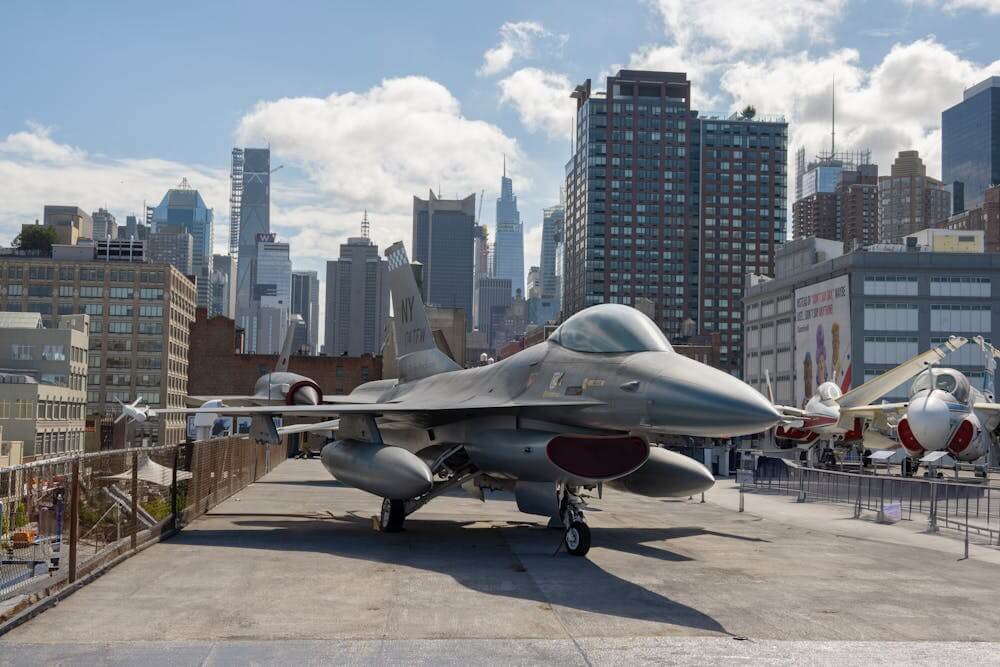Lockheed Martin, a global leader in defense, aerospace, and advanced technologies, recently announced a series of layoffs. This news has sent shockwaves through the industry, triggering a mix of emotions among employees and stakeholders alike. This article explore the reasons behind these Lockheed Martin layoffs and their potential impact on the company and its workforce.
Overview of Lockheed Martin
Lockheed Martin has long held a prominent position in the defense, aerospace, and technology sectors. With over 100,000 employees worldwide, the company takes pride in its ability to develop cutting-edge technologies and provide top-tier services.
However, recent plans to cut 1% of its workforce, amounting to over 1,000 employees, have raised eyebrows. These layoffs seem to contrast starkly with the company’s strong first-quarter performance in 2024 and a robust backlog of future orders.
In comparison to its main competitors, such as Boeing, Northrop Grumman, and Raytheon Technologies, Lockheed Martin’s decision to implement layoffs is somewhat surprising. These competitors, despite facing similar challenges, have chosen to navigate the current economic landscape differently, opting for strategies such as operational streamlining and strategic partnerships to maintain their workforce size.
Is There Any Lockheed Martin Layoffs in 2024?
The announcement of Lockheed Martin layoffs in 2024 came as a surprise to many. This decision was framed as part of the company’s cost-cutting measures, motivated by a desire to enhance efficiency and reduce operational expenses. The layoffs are expected to affect a variety of roles and sectors within the company, casting a shadow of uncertainty over their workforce.
What are the Reasons for Lockheed Martin Layoffs?
The reasons behind the Lockheed Martin layoffs are multifaceted. One significant factor is the prevailing supply chain challenges exacerbated by the COVID-19 pandemic. These issues have led to production delays and increased costs, putting financial strain on the company.
Additionally, the cancellation of key projects such as the U.S. Army’s Future Attack Reconnaissance Aircraft (FARA) program has also played a role. This cancellation resulted in a substantial loss of anticipated revenue, prompting the company to reevaluate its budget and personnel needs.
Impact Of Lockheed Martin Layoffs On Employees
The Lockheed Martin layoffs have been a significant source of concern for employees. With a substantial number of workers affected, the impact on the workforce cannot be understated. The loss of jobs can cause financial strain, decreased morale, and increased stress for those who find themselves suddenly unemployed.
In addition to immediate financial concerns, the layoffs may also lead to longer-term consequences for affected employees. Career prospects may be uncertain, making it difficult for them to plan for the future. Furthermore, the loss of specialized skills and experience from the company may negatively impact Lockheed Martin’s ability to innovate and compete in the long run.
Ultimately, the human cost of these layoffs is significant. While the company may benefit financially in the short term, the long-term consequences for both employees and the company’s reputation should not be overlooked.
Is Lockheed Martin Layoff Benefits the Company?
The Lockheed Martin layoffs have been primarily driven by the need to cut costs and streamline operations. In the short term, these layoffs may yield significant savings for the company. A percentage of the workforce has been let go, reducing payroll expenses and potentially increasing efficiency in certain departments.
However, it is essential to consider the potential long-term consequences of these layoffs. The loss of experienced and skilled workers may hinder the company’s ability to innovate and compete in the future. Additionally, the negative impact on employee morale and the company’s reputation could make it more challenging to attract and retain top talent in the future.
Ultimately, the true benefits of the Lockheed Martin layoffs will only become apparent over time. While cost savings may be an immediate advantage, the potential long-term consequences should be carefully weighed against these short-term gains.
What Lockheed Martin Said About Layoffs?
In response to the layoffs, Lockheed Martin has emphasized the need for cost-cutting measures to remain competitive in a rapidly evolving market. The company has cited external market forces, such as increased competition and shifting customer demands, as primary drivers behind the decision to reduce its workforce.
Lockheed Martin has also highlighted its commitment to providing support and resources for affected employees. This includes offering severance packages, job placement assistance, and other resources to help ease the transition for those who have lost their jobs.
Financial Status
Despite the recent layoffs, Lockheed Martin remains a financially stable company. With revenues in the billions and a healthy profit margin, the company continues to be a key player in the aerospace and defense industries. However, ongoing market pressures and the need to remain competitive have led to the decision to cut costs and streamline operations.
In Q1 2024, Lockheed Martin performed well financially: $17.2 billion in sales, a profit amounting to $1.5 billion, while earnings per share stood at $6.39. The cash generated was $1.6 billion and the free cash flow of $1.3 billion.
They returned $1.8 billion to the shareholders with dividends and buying back their shares. The prospects are not bad either since it earned US$159 billion in future orders – especially its vital space contract.
Recent financial statistics indicate that Lockheed Martin is still in a strong position, but the company must continue to adapt and innovate to maintain its market share. As competition intensifies and customer demands evolve, Lockheed Martin must find ways to deliver value while managing expenses effectively.
Conclusion
While the Lockheed Martin layoffs are undoubtedly disheartening for the affected employees, the company’s overall stability and potential for growth remain strong. The layoffs are a strategic move designed to streamline operations and improve financial performance.
By focusing on key projects and investing in new technologies, Lockheed Martin is positioning itself to remain a strong competitor in the defense, aerospace, and technology industries in the years to come. Despite the current challenges, the company’s commitment to innovation and excellence suggests a promising future.


